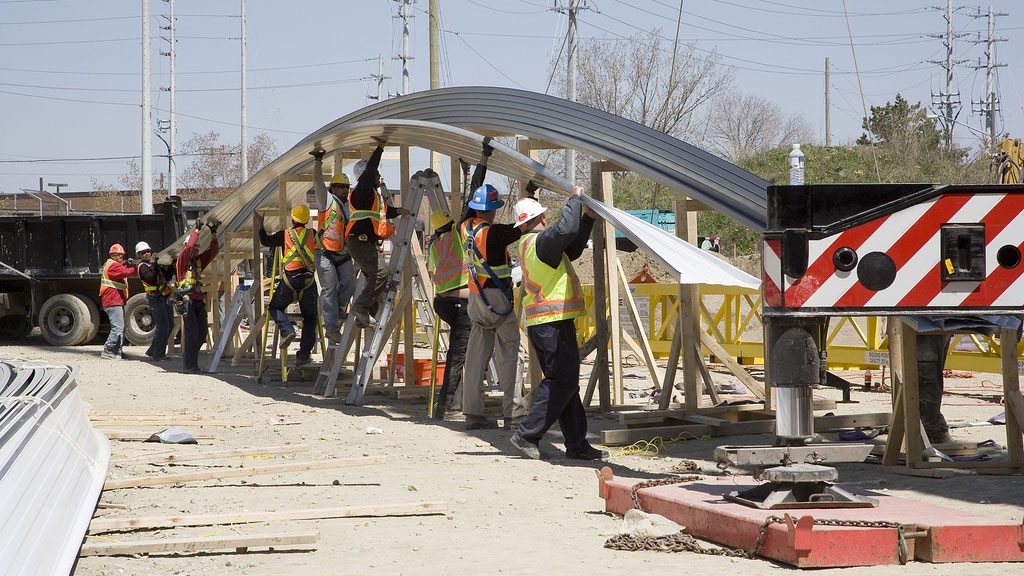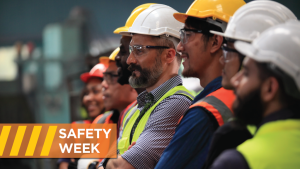Leaders in Ontario’s construction industry have mixed views on the federal election being called by Justin Trudeau’s Liberal government Aug. 15 and what the party priorities should be, but all agree it was not a surprise.
“The only thing surprising about it is that we didn’t need one,” said Richard Lyall, president of the Residential Construction Council of Ontario.
“To call an election when you’ve got all these other things going on, it doesn’t make sense. They say they needed to have a mandate? Well they spent an unprecedented amount of money in Canadian history already without having a majority government.”
One good thing that can come out of the election, he added, is to draw attention to the housing problem in Toronto and across the country.
He recognized the federal government doesn’t control all the levers to housing policy.
“When you get into a situation where Toronto becomes the most expensive city in the world to live in relative to incomes, that’s absurd,” stated Lyall.
“This is one reason why I do like the Tory platform that came out. I think it’s ambitious, some people might say it’s unrealistic.
“It is calling for homes to be built, addressing and recognizing that we have a supply problem and making government land and properties available, many of which are underutilized and could be used to build housing. Focusing on supply, eliminating barriers to supply, that’s the kind of visionary stuff we need for housing.”
On the other hand, Patrick Dillon, business manager and secretary treasurer of the Provincial Building and Construction Trades Council of Ontario, sees the election as a “positive thing.”
“In general terms the election should be a good thing for our members and all Canadians,” said Dillon, pointing out there is the view Canadians were not in favour of going to the polls.
“My take on that is the only time Canadians or the electorate are really in favour of having an election is when they have determined in their own mind that they want to get rid of a government, otherwise they don’t want an election. I think that’s probably good news for the incumbent party.”
Dillon said although he hasn’t heard all the party platforms yet, leading up to the election the leaders were talking about the importance of investing in infrastructure.
“I think for our industry and for Canadian youth, that spells job opportunities and apprenticeships and careers in construction,” Dillon noted.
“The employers and the unions and the training centres can make real commitments to the youth and there are really good careers for them with these infrastructure investments.”
Stakeholders say they are looking forward to hearing more about party priorities as the campaigns ramp up.
“Everyone keeps emphasizing that infrastructure and construction will be very important elements of Canada’s economic recovery.
“We are going to be looking forward to hearing more about the parties’ infrastructure priorities,” said Nadia Todorova, executive director of the Residential and Civil Construction Alliance of Ontario.
“I would be curious to know what each party’s stance is on a federal water fund to help municipalities address their leaky pipes and crumbling sewers, because our most recently commissioned report highlighted that that remains a significant issue across Ontario for municipalities.”
Economic recovery and forward-looking stability are going to be critical in the election, particularly at the municipal level, said Patrick Mcmanus, executive director of the Ontario Sewer and Watermain Construction Association.
“The next government has to establish a better method to getting committed infrastructure dollars spent faster,” he said in an email to the Daily Commercial News.
“The Trudeau government has committed significant funding to build 21st century infrastructure; however, there has been a problem delivering on these commitments. The construction industry looks at how the current funding system works and can see the glaring issue: provinces and municipalities are required to submit individual project applications for federal funding.
“This results in the feds having to review tens-of-thousands of project applications to decide which ones deserve funding. There has to be a better way.”
Canada needs to adopt a system that requires public bodies to develop and submit infrastructure asset management plans based on a standardized framework for classification, assessment and measurement to determine federal funding eligibility, he added.
“Ontario is already there and putting it in place on a national level will ensure that federal investments are directed to projects and areas which demonstrate the greatest need for improvement,” McManus said.
Karen Renkema, vice-president, Ontario, with the Progressive Contractors Association of Canada (PCA), said PCA will be analyzing all party platforms as they are released but so far only the Conservatives have outlined their priorities.
“Generally, there are a few things I really welcomed in that Conservative platform, particularly the increase to the apprenticeship tax credit for employers. It goes directly to employers not intermediaries,” said Renkema.
“The supports to both First Nations and municipalities on infrastructure development and ensuring there is a little more flexibility on what projects can be funded by the federal government, that they’re not just ‘green projects,’ but are based on need. The other portion of the Conservative platform that we are interested in having further conversation with them about was the focus on competition.
“PCA is incredibly interested in talking about monopolies and ensuring that there is competition within the industry.”
Erich Schmidt, government and stakeholder relations for the Ontario General Contractors Association (OGCA), said the association looks to the Canadian Construction Association (CCA) for guidance on election strategy.
He said the OGCA supports CCA’s Building for Recovery campaign which urges all levels of government to gets funds flowing for infrastructure.
“We saw just this week the provincial auditor noted infrastructure needs to be updated across Ontario, so we would really like to see some form of long-term infrastructure plan,” he said.
“There is a need for a consistent rollout of projects across Canada…making sure money flows from the federal government, to the provincial government, to the municipal government and everybody works together to ultimately get the project delivered in an effective manner.”
The election will take place Sept. 20.









Recent Comments
comments for this post are closed